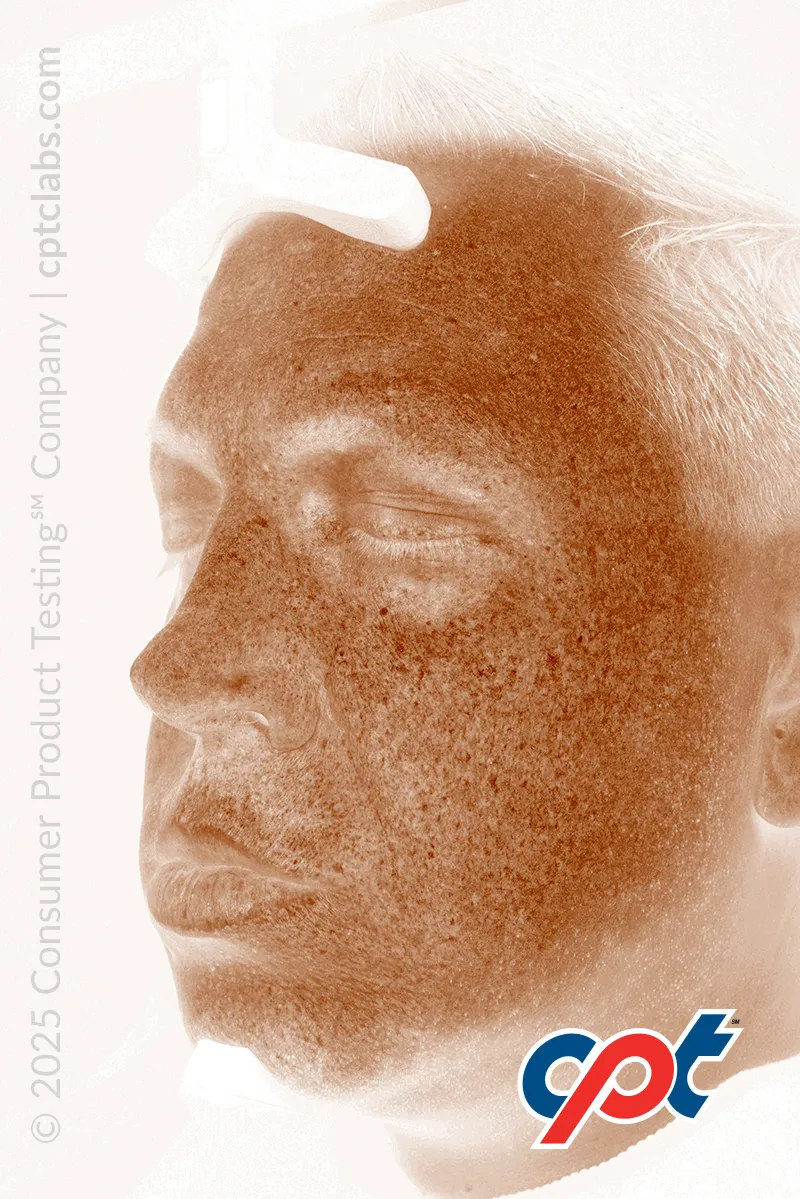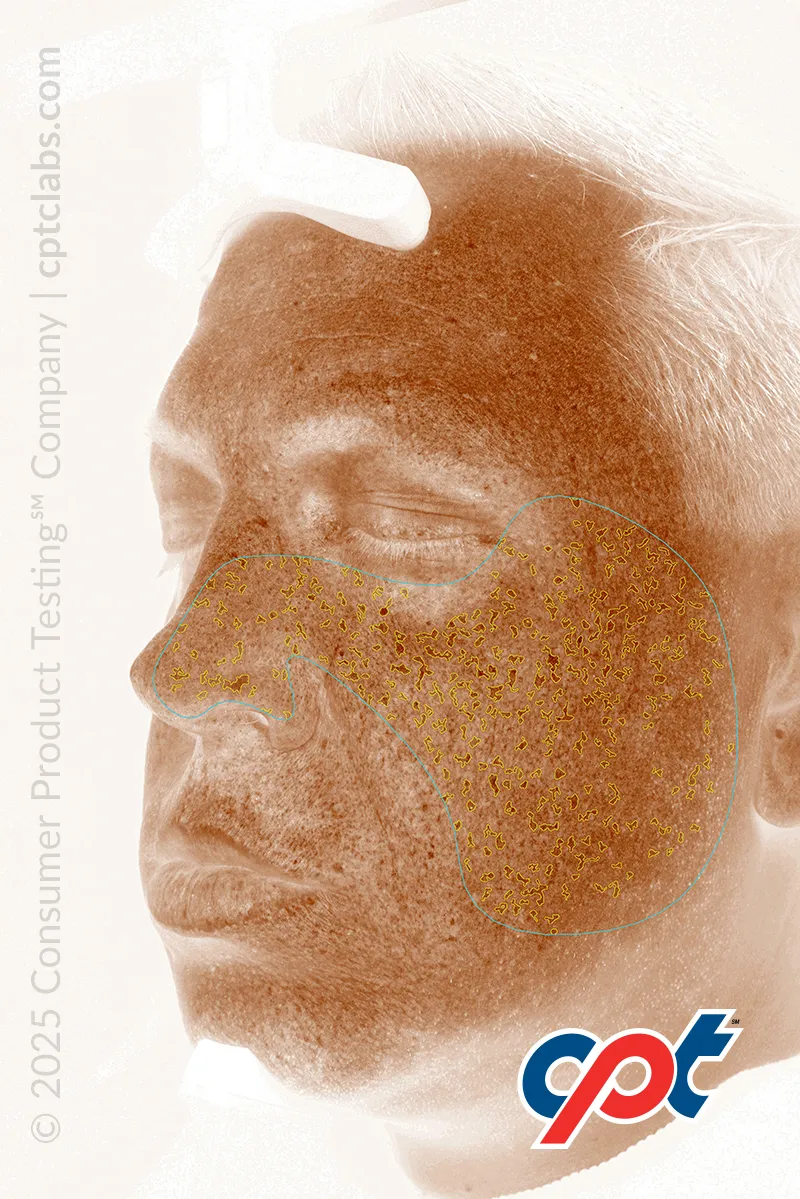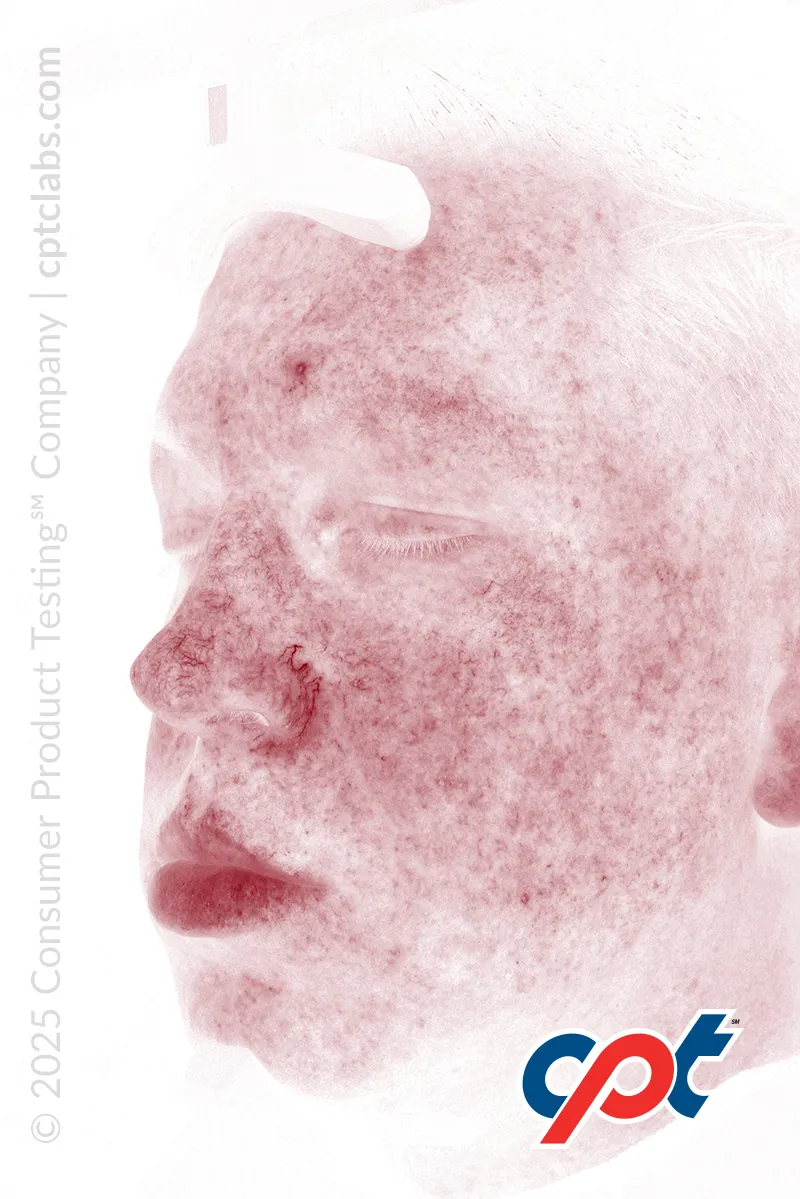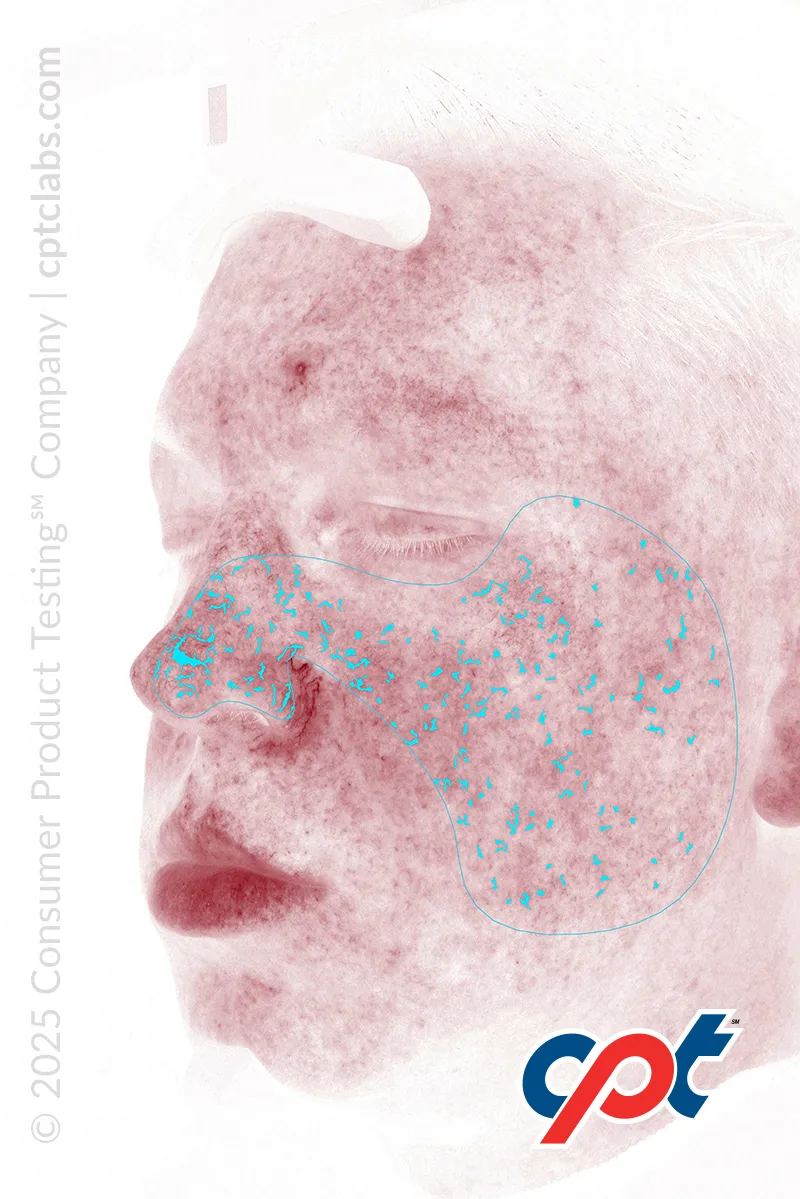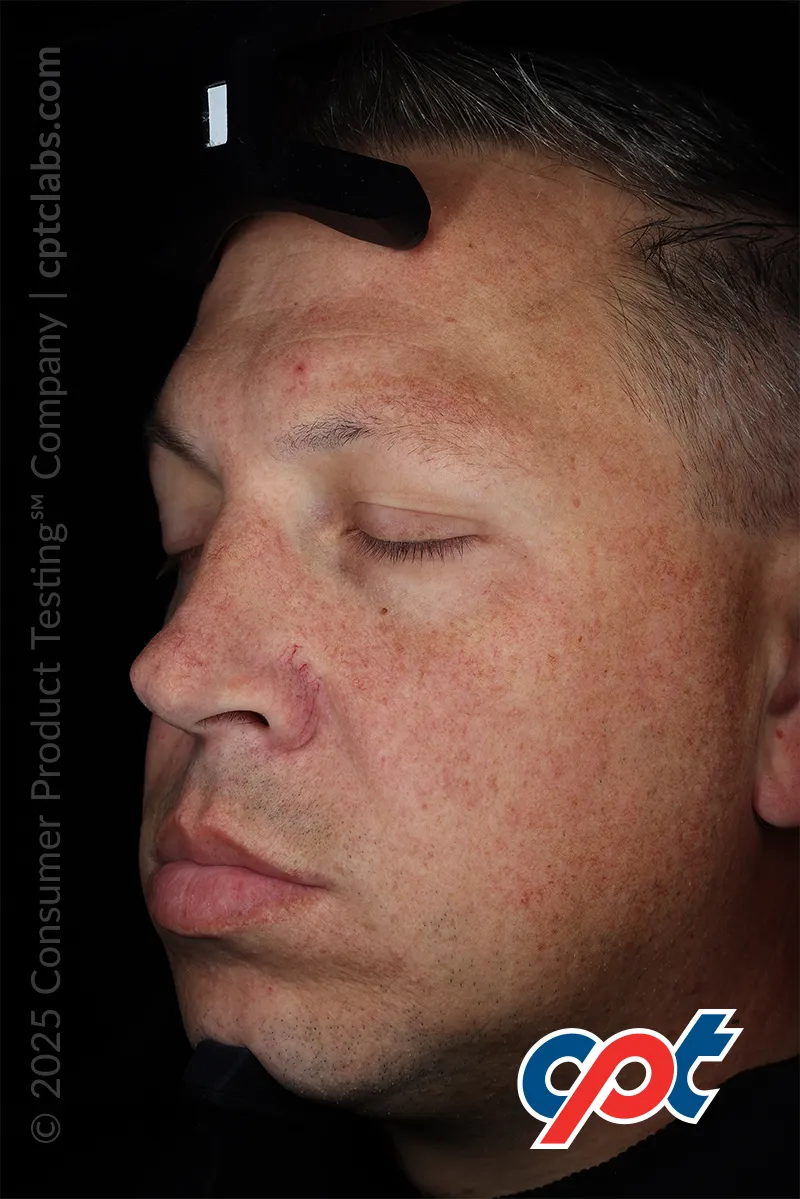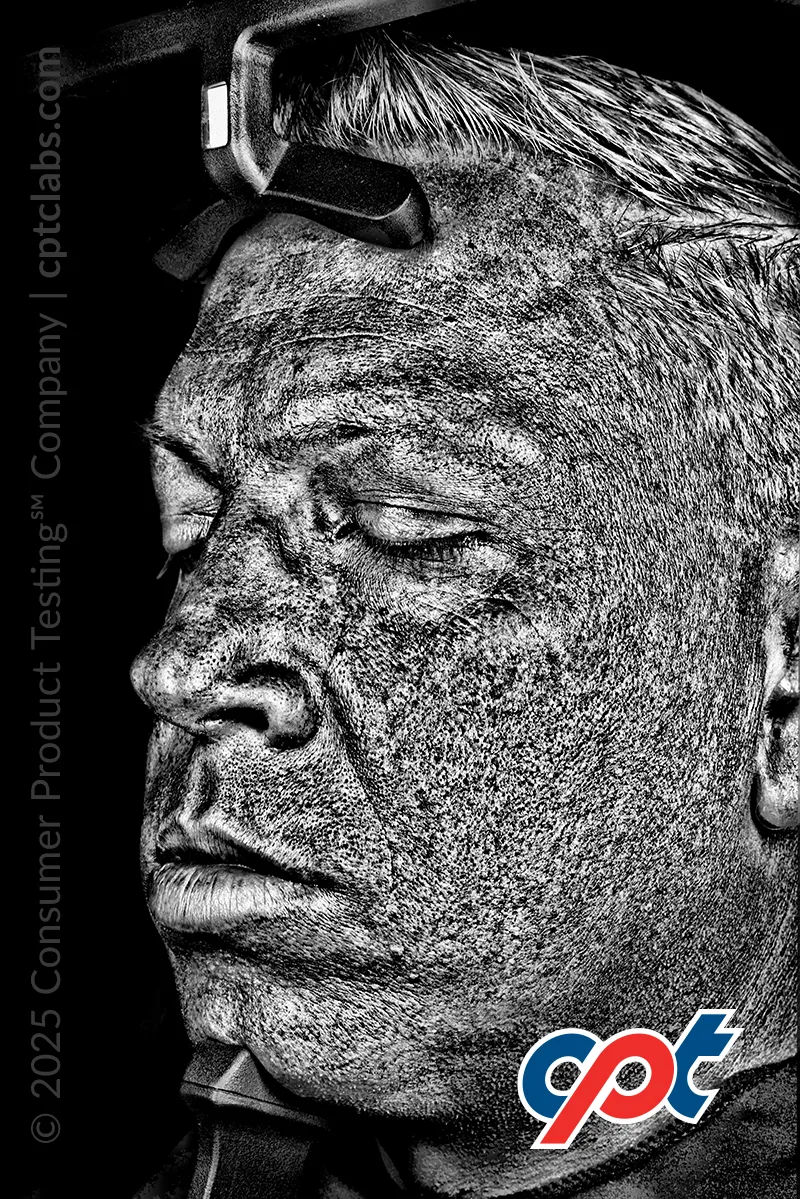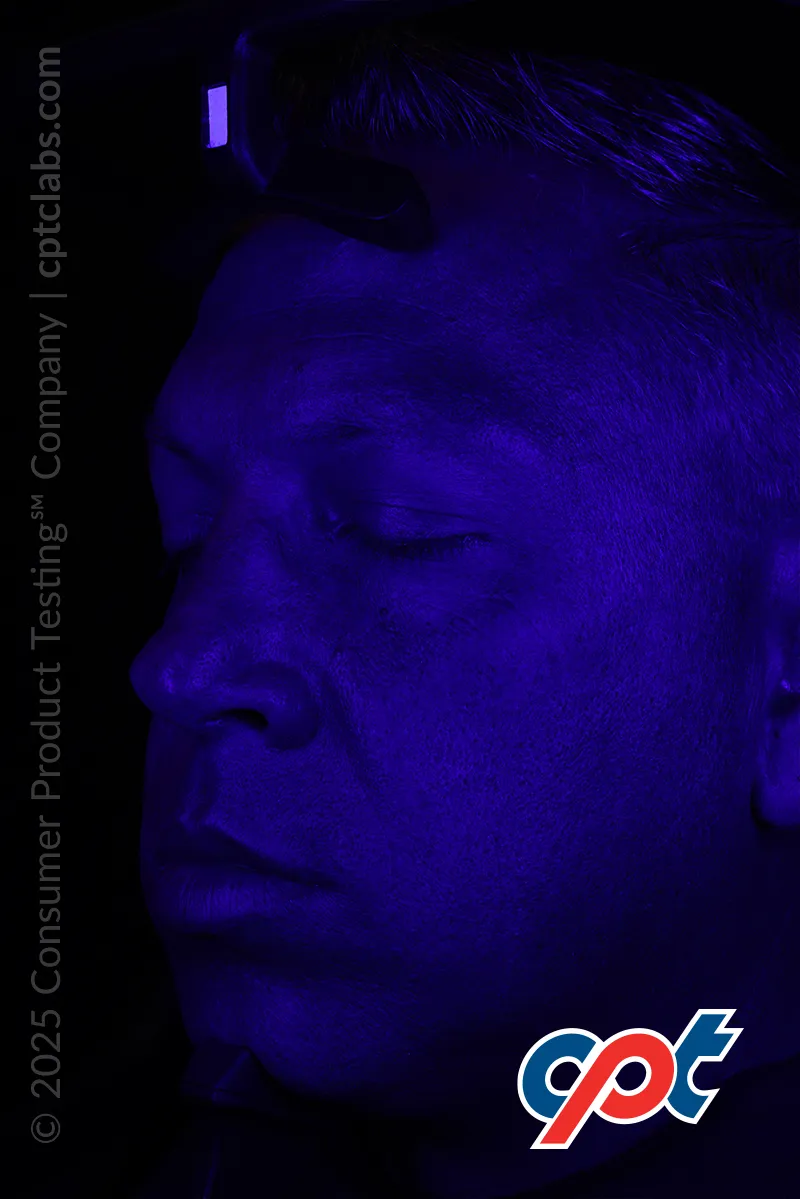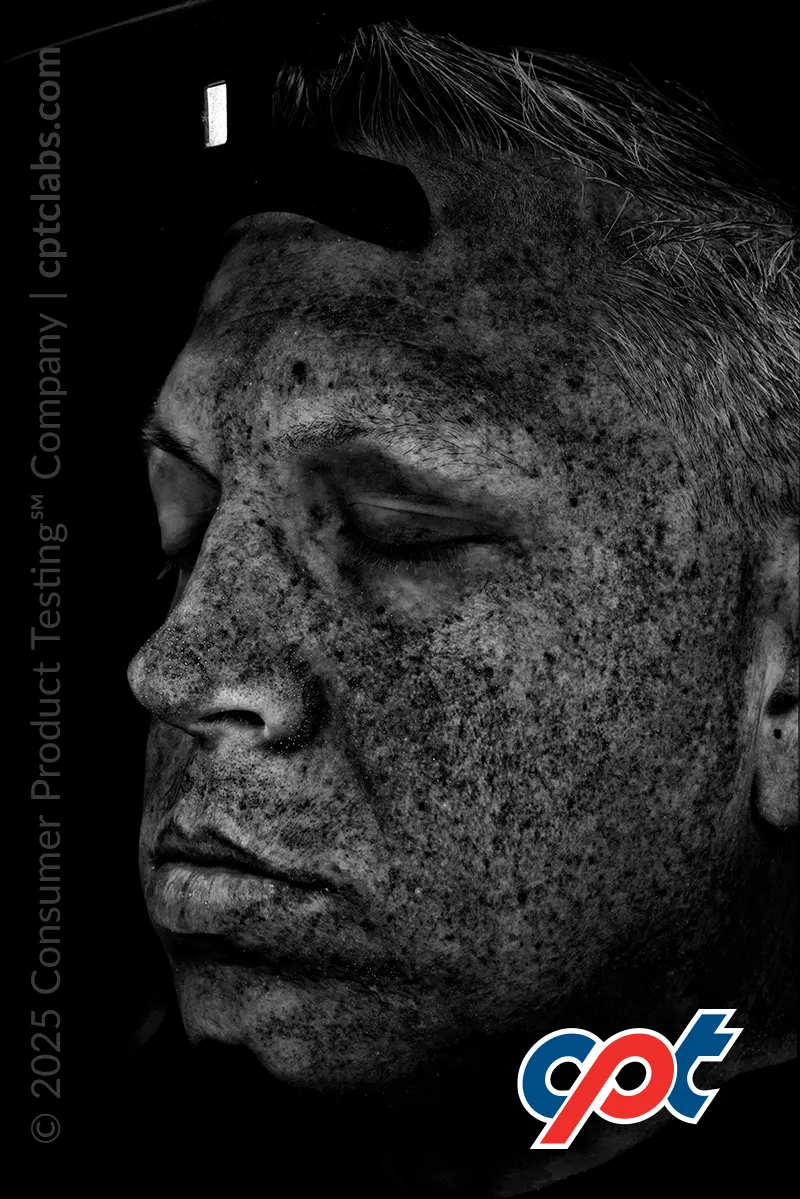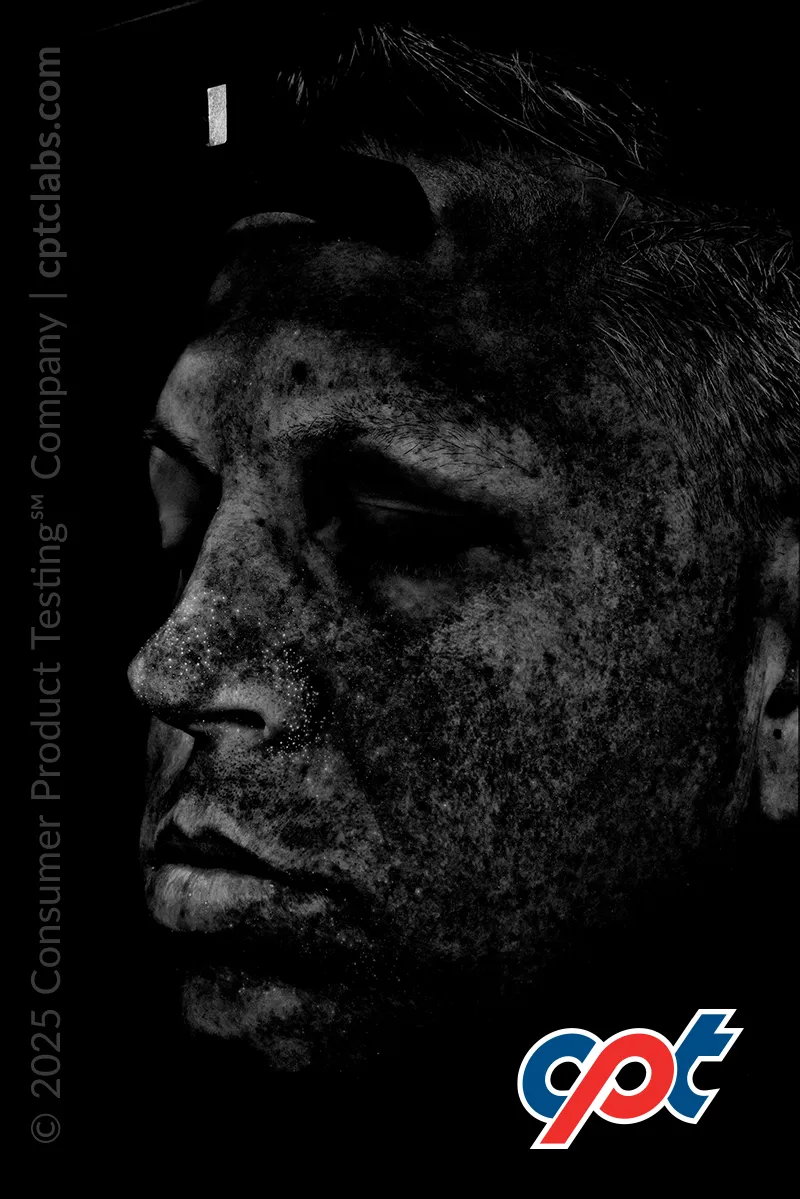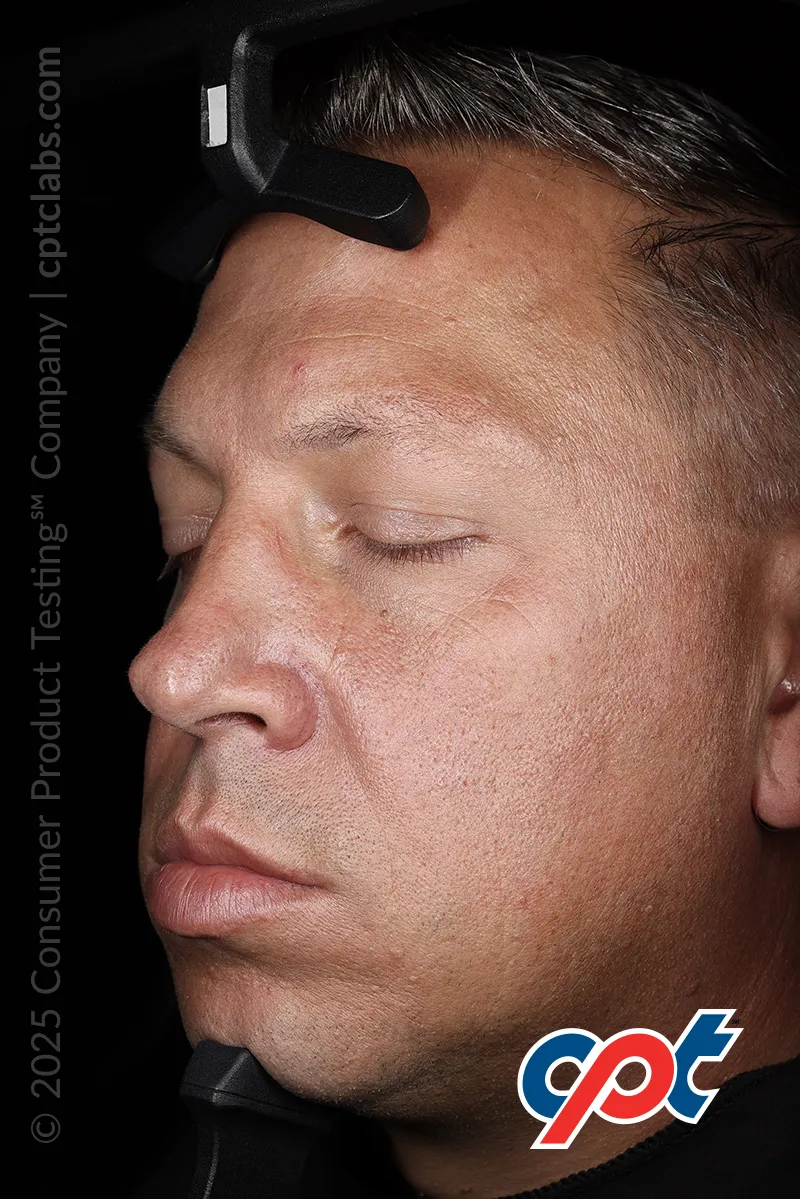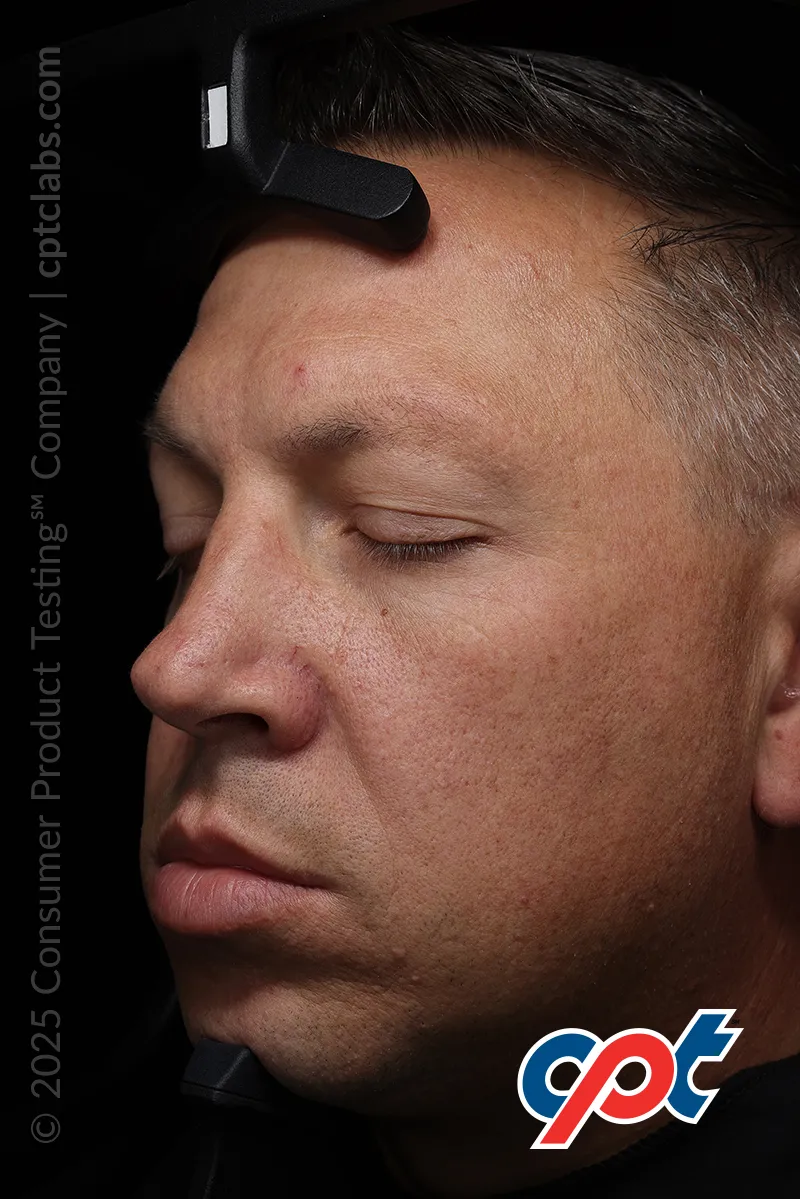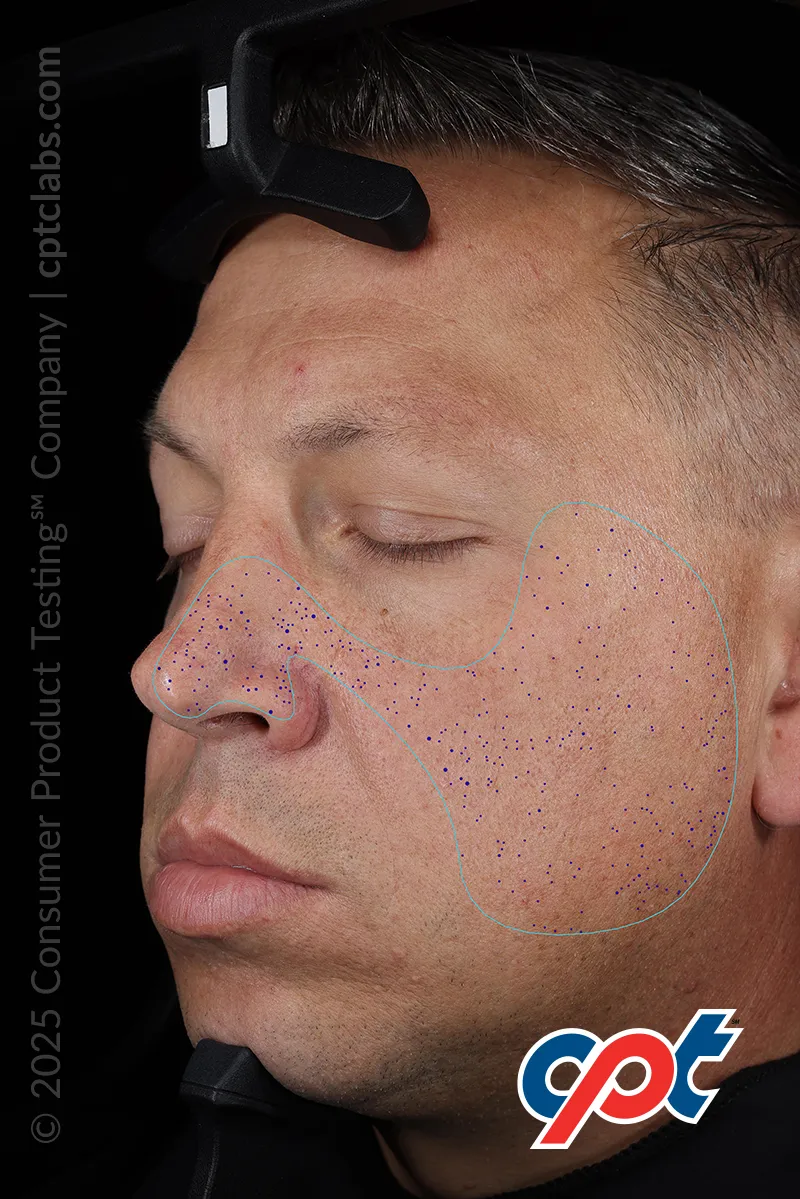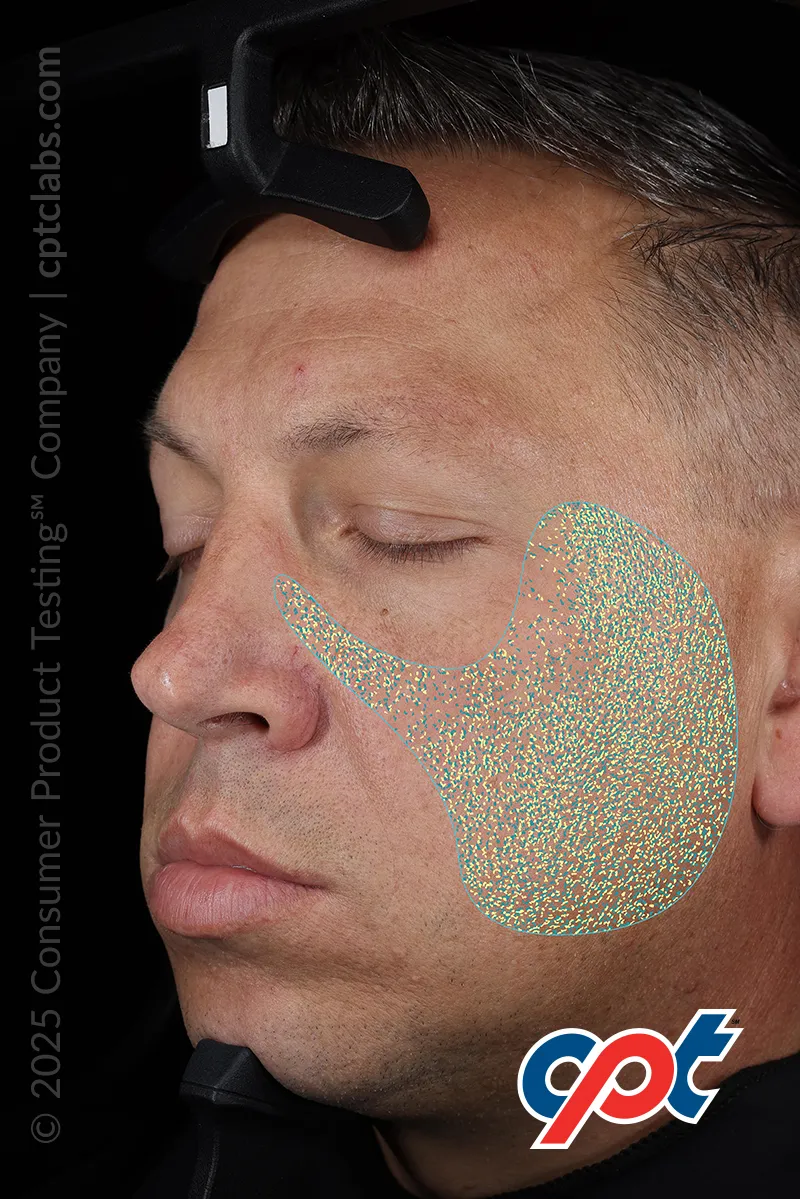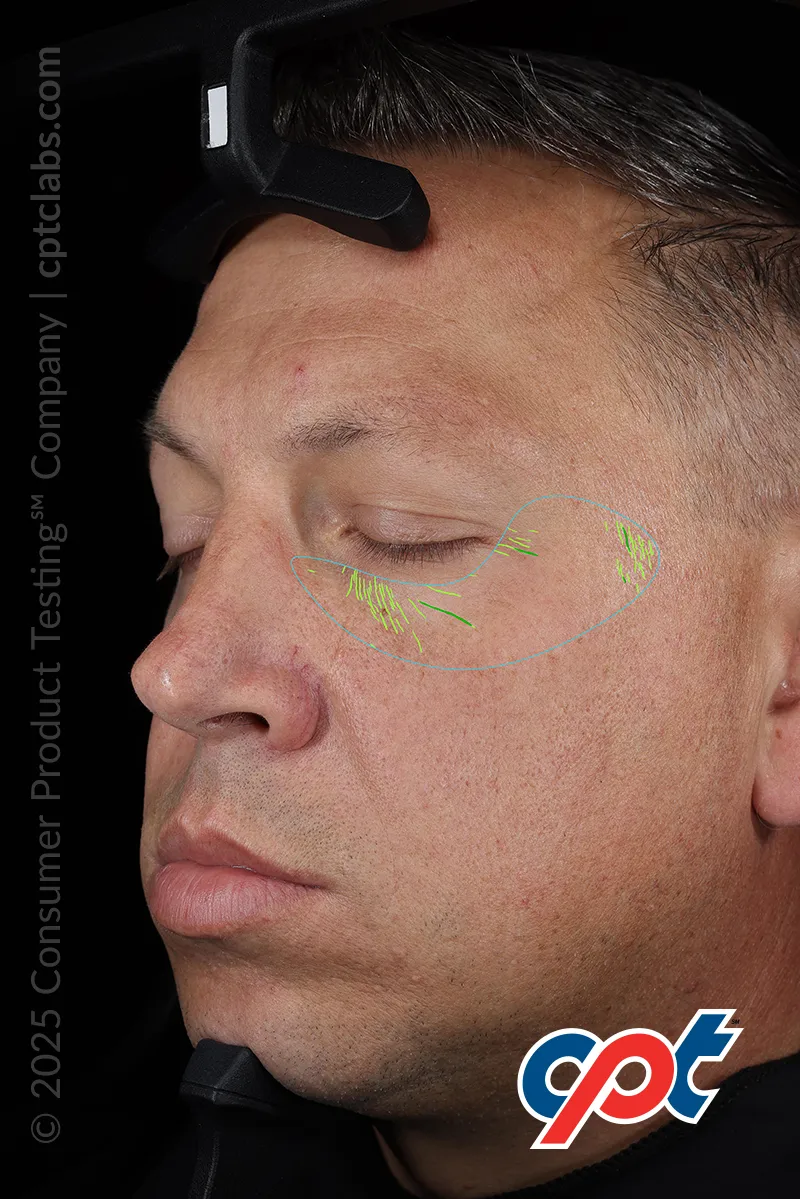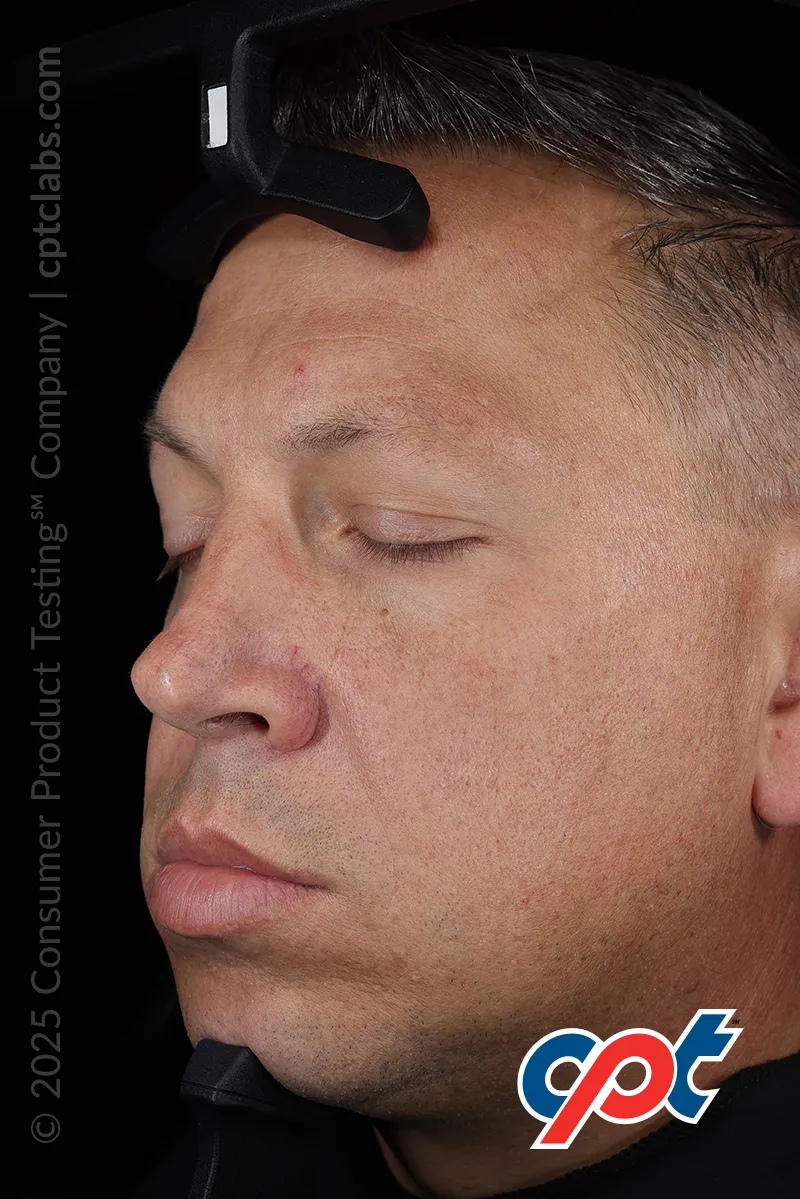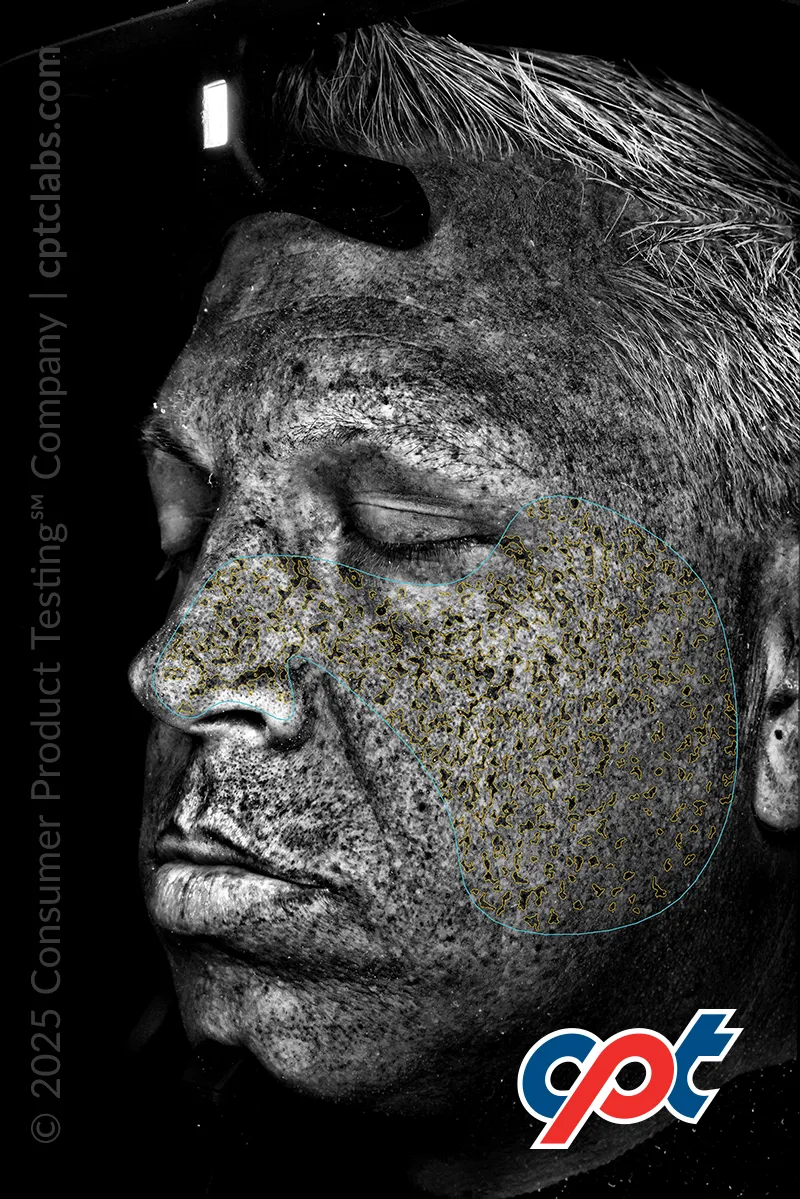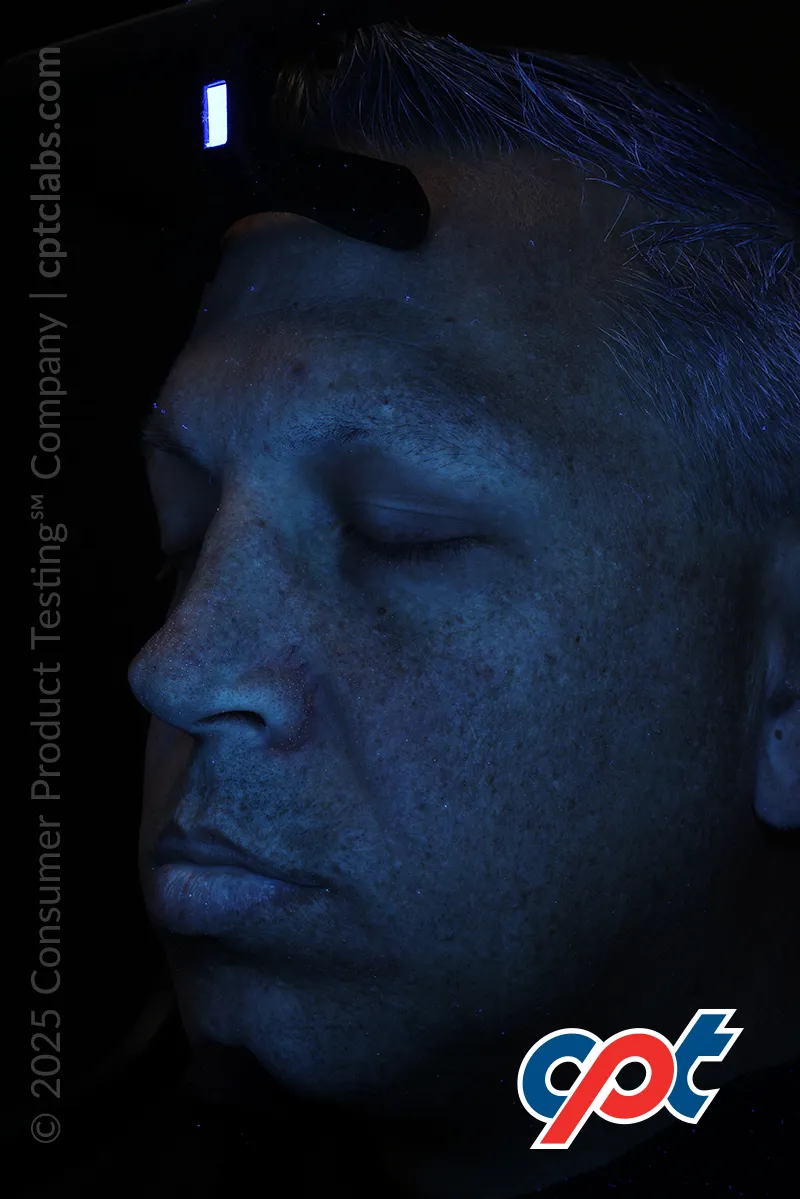Clinical Bioinstrumentation Testing is a powerful tool that is used for measuring physiological responses to cosmetic products and evaluating those responses with regard to the intricacies of skin composition. CPT℠ employs a wide range of state-of-the-art bioinstrumentation coupled with the most current methodologies to provide detailed analyses across various parameters that are critical to determining the efficacy and safety of cosmetic products.
Clinical Bioinstrumentation Testing Services offered by CPT℠ include the evaluation of skin surface topography, elasticity, firmness, moisturization, transepidermal water loss (TEWL), complexion and skin image analysis, and the substantiation of sebum production/reduction claims, anti-aging claims, and skin dryness/exfoliation claims.
Read on to learn more about the specific types of testing offered and claims which may be substantiated through our testing.
HairMetrix
Global capture utilizing VisioMed D200 allowing for real-time analysis. View images in HairMetrix Compare mode to demonstrate progress between baseline and follow up treatment image capture.
Fast and simple AI driven analysis from unclipped trichoscopy images for general hair counts to using clipped hair imaging to determine Anagen/Telogen ratio and more accurate hair count data.
Learn More
Anti-Aging Claims Testing
CPT℠ specializes in evaluating the effectiveness of anti-aging products through a variety of rigorous testing methodologies. Our approach enables the precise assessment of the efficacy of skincare products, thereby providing substantiation of your claims.
3D Measurement System: Aeva-3D-HE with the Visio 4-D Bench
Employing fringe projection and stereovision (sometimes referred to as active stereometry), the Aeva-3D-HE with the Visio 4-D bench combines the largest field of view with the highest resolution to offer the best performance and flexibility to address different types of studies and measurements, from wrinkle reduction to body reshaping. This testing provides quantitative efficacy assessments of cosmetics, aestheticals, dermatology products, and treatments.
Learn More
PRIMOS™ 3-D Image Analysis
CPT℠’s PRIMOS™ Image Analysis systems offer high-quality imagery that provides insights into skin texture and surface topography. This information serves as a valuable tool in product development, and for the evaluation of anti-aging claims such as ‘reducing the appearance of fine lines and wrinkles.’
Visia-CR™ Photo System
Our Visia-CR™ with PRIMOS system provides images under multiple lighting conditions with the addition of 3-D image capture. This allows for comprehensive skin complexion and skin surface topography analysis. With detailed computerized data analysis, anti-aging claims such as ‘lightening the appearance of dark spots’, or ‘reducing dark circles, fine lines, and wrinkles around the eyes’ may be substantiated.
Viscoelasticity Testing
Understanding the viscosity and elasticity of the skin after the use of cosmetic products is imperative for assessing their performance. Leveraging bioinstruments such as the Cutometer and Elastometer, we accurately measure and analyze the viscoelastic properties of the skin after usage of cosmetic formulations. This testing aids in the development of high-performing skincare products and in the substantiation of claims.
Moisturization Testing
CPT℠ testing methodologies employ specialized bioinstrumentation such as the Corneometer and MoistureMeterSC to accurately measure changes in skin moisturization levels. This is essential for evaluating the efficacy of moisturizers and skincare products, and for substantiating claims of moisturization.
Transepidermal Water Loss (TEWL) Testing
Using a Vapometer enables CPT℠’s Clinical Bioinstrumentation staff to gauge transepidermal water loss (TEWL) so as to evaluate the barrier function of the skin. TEWL provides insights into the safety and efficacy of a product to breakdown, repair or enhance the skin’s natural barrier.
Sebum Testing
Understanding sebum production is crucial in formulating skincare products tailored to individual skin types. Measuring changes in sebum on the skin can substantiate cosmetic claims and provide valuable information when developing products for acne-prone skin.
D-Squame™ for Skin Dryness & Exfoliation Evaluation
The D-Squame™ technique provides detailed insights into skin dryness and exfoliation, thereby guiding the development of products to effectively address these concerns. D-Squame™ may also be used to substantiate product claims for skin moisturization and exfoliation.


